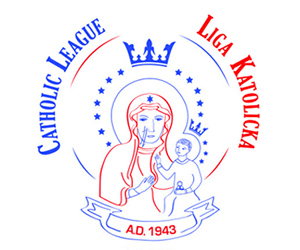
OK, now it’s officially official. The Christmas seasons comes to an end. In many Polish homes Christmas decorations remain until this feast of the Presentation of our Lord in the Temple. It does make sense on two levels. First, it’s the last story in the bible of Jesus’ infancy. There is the story of Jesus getting lost in the Temple, but he was 12 years old then, and that doesn’t qualify for being a baby. Second, it prolongs the theme of the “incarnation” which is one of the most important doctrines of our faith. If Jesus is not the second person of the most holy blessed Trinity, Christianity falls back into the category of all the other religions that were popular in the early church years. But please do not think that the “incarnation” is a simple lesson of catechism that any child can memorize. A lesson from history will help us enter into the deep mystery that is Catholic orthodoxy.
Going back to the 600’s we meet Pope Martin I (d:655). Here are the basic facts of the story. The Eastern and Western halves of the Roman Empire were constantly at each other’s throats. Emperors and occasionally a bishop would lop off heads trying to bring peace among the people. This is the era in which people who like to announce “religion is the cause of all war” delight. At first glance, I almost want to agree with them when this episode of Catholicism is told. The Emperor in the East was Constans II. He was a pagan politician who couldn’t accept Christianity but yearned for peace throughout this empire. His religious friends, the bishops of the East, almost all accepted something called monothelitism. These folks said, “yes, Jesus had a divine AND a human nature, but Jesus had only one will, and that will was divine. Pope Martin, true to his office, was defending the full and complete human nature of Jesus as well as his full divine nature. Are you with me still? At this point, you maybe saying, “How silly, one will or two wills, what difference does it make?” Because, the Emperor, who had a better army than the Pope (recall, the Western Roman Empire had fallen before this) arrested the Pope and put him on the “almost” island of Crimea in the Black Sea. Probably, a pretty nice place to vacation today, but a great place for a Papal prison back then.
So, why should we care if some theologians say Jesus didn’t have a human will? This question is NOT like asking, “why should I care if my coffee sweetener doesn’t have artificial sugar. It is much more like asking, “why should I care if Jesus is my hero to follow or Buda or Mohamed, my favorite political hero. It has everything to do with our efforts to follow Jesus’ example of love, love even unto the giving of our lives. You see, if we believed that Jesus’ will was only Divine, we could easily say, it’s not fair to compare ourselves to Jesus. He never struggled against temptations and even when he accepted death on a cross, it really wasn’t such a great human achievement. Why should us, pure humans give credit to him for doing something that only gods could do? The orthodox view of Jesus’ two wills: human and divine impresses us to strengthen our wills to conform them to God’s. Modern monothelitism exists whenever we sin badly and say something like: “I was only being human”. Think about it. Now, don’t you feel silly for siding with Emperor Constans II?
Fr Thomas Koys, M.A.S.T.L







